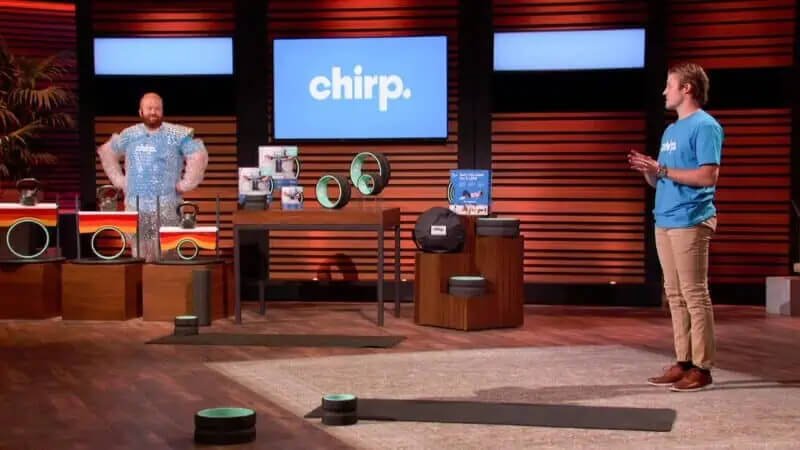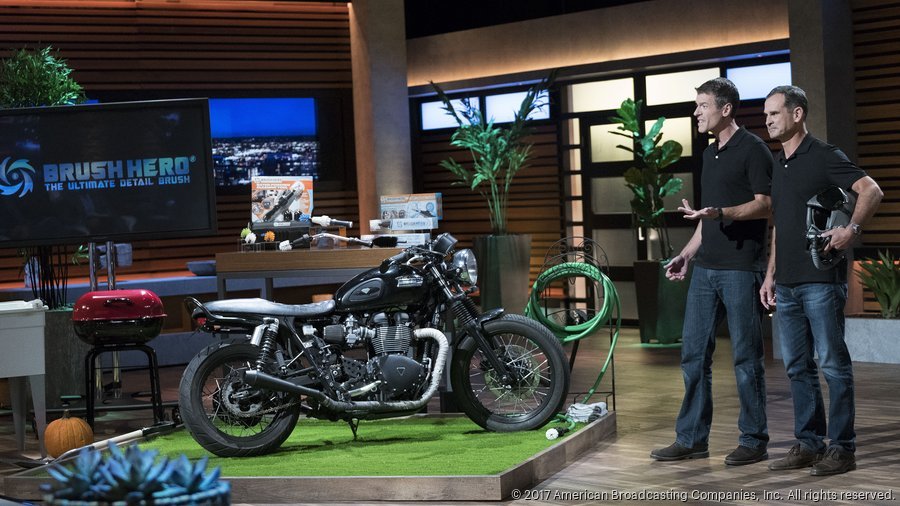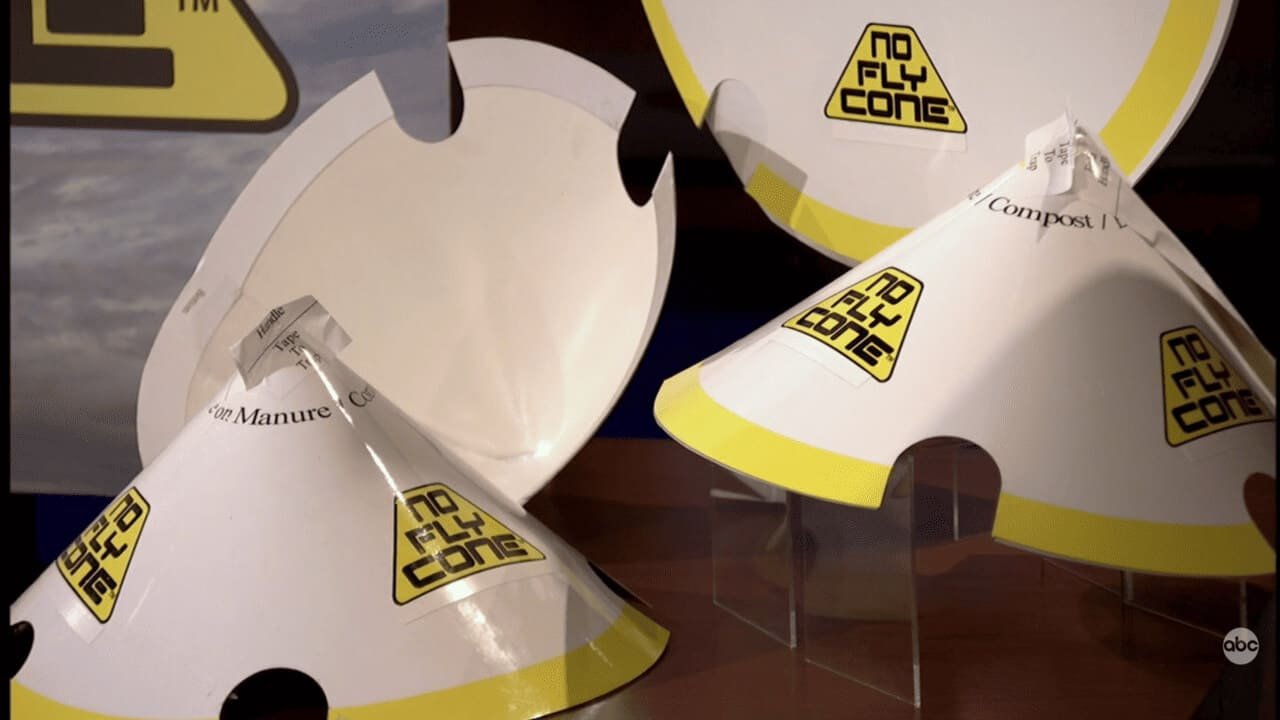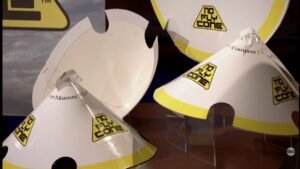Ever heard those words, They got a deal on Shark Tank! and thought, so what? For every Scrub Daddy, there are ten crash-and-burns. Let’s get real — does a handshake from a Shark really mean cash in the bank? Or is it just hot air for a few months of hype? The BenjiLock story is pure hustle. Let’s look at why this Shark Tank deal actually meant something — and how Robbie Cabral turned a simple biometric lock into a retail force.
Contents
ToggleWhat Is BenjiLock?
Locks haven’t changed much since your granddad’s day. Then BenjiLock hit the scene — a padlock you open with your fingerprint or a key. That’s right. No app to crash, no PIN for your roommate to share. It’s biometric meets old-school steel.
What makes BenjiLock different isn’t just the tech. It’s combining that fingerprint sensor with the safety net of a backup key, so you’re never totally locked out. People are talking because it solves the real locker room pain: lost keys and passwords. Need to open your locker or gym bag? Touch the sensor. No need to scroll through settings or remember codes.
That blend of new school and old school — that’s why BenjiLock made noise before it even got to Shark Tank. And once it hit TV, the game changed fast.
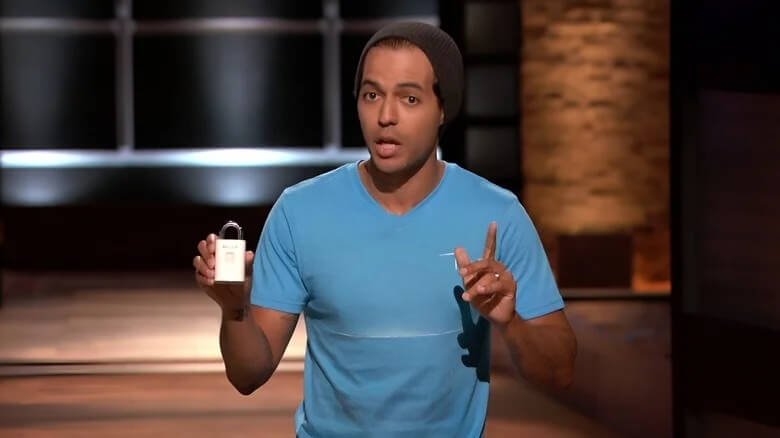
Who Came Up With BenjiLock?
Every founder’s story has a crash and burn moment. Robbie Cabral’s was about as raw as it gets: fired from his job the same day his daughter was born. Immigrant, brand new father, and now out of work — nothing handed to him. Most people curl up. Robbie got moving.
He spent nearly two years building BenjiLock, fighting self-doubt and living the grind. That’s startup life. No safety net, no big checks. Just a garage, a handful of prototypes, and a patent he hustled to file before his idea got swiped.
When people ask, Who came up with BenjiLock? — it’s not just inventing a padlock. It’s scraping by on faith, turning rejection into jet fuel, and showing up when people stop believing. That’s what real founders do.
BenjiLock Hits Shark Tank: The Pitch Breakdown
Let’s cut the BS: most people freeze up in front of the Sharks. Robbie Cabral knocked his pitch out cold.
He stepped into Shark Tank Season 9, Episode 4, and put his pain and hunger right on the table. He showed the Sharks his non-working prototype, then got real about his struggles. He told them he had a patent in hand — which, trust me, gets investors leaning in fast. He pulled out some sharp market research: a survey that said 99.9% of people would pay $60 or more for BenjiLock, while his projected cost per unit (for big runs) was just $20.
You need guts to flash numbers that big on national TV. That’s what gets sharks circling. Robbie was there for $200,000 in exchange for 10% equity. Classic ask. But he didn’t play the my way or the highway card — he watched, listened, read the room. I’ve seen founders choke opportunities by being too rigid. Robbie? He was loose, honest, ready to play.
Kevin O’Leary — Mr. Wonderful himself — bit hardest, but A-Rod was on the hook, too. In a field packed with tech gadgets and plastic junk, BenjiLock actually solved something real.
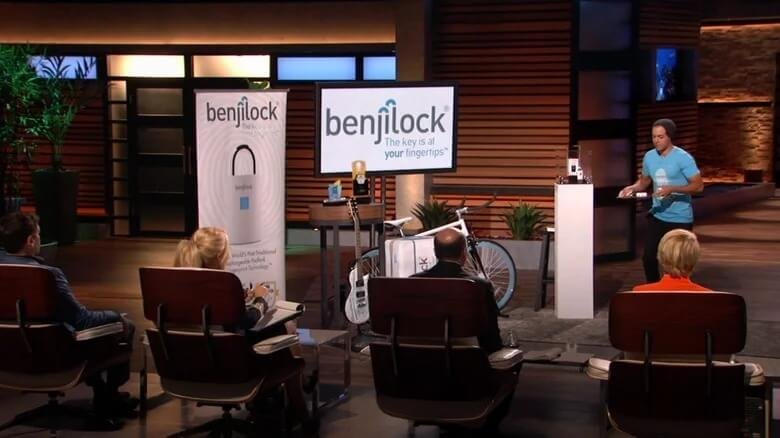
Net Worth: How Much Is BenjiLock Worth Now?
Here’s the truth: most businesses overhype their numbers after Shark Tank. We’re an overnight success! Throw out those claims.
BenjiLock? The math looks legit.
The real gold wasn’t the $200K check. It was what happened next — a phone call from Kim Kelley, CEO of Hampton Products International. This isn’t Mom and Pop Hardware. Hampton moves millions of units into stores like Walmart, Lowe’s, and Best Buy. That kind of back-end operations and distribution muscle is the difference between a cute Kickstarter and a true retail player.
Is BenjiLock worth eight figures? Current estimates put the company well into the millions, though final net worth numbers are tightlipped. But let’s read between the lines: they’ve locked in national shelf space, struck one of the biggest security product distribution deals on the market, and you can find them on Amazon Prime. That’s not just hype — that’s staying power.
You don’t get that without deep partnerships, real margins, and a product people actually use — not just want to demo.
The Deal: Who Got In and What Changed
Let’s talk about the deal. On air, Kevin O’Leary took it at $200,000 for 15% equity. Robbie Cabral knew he needed a Shark who gets licensing, patents, and real distribution, not a quick flash in the pan.
Why Mr. Wonderful? Because O’Leary doesn’t just write checks — he knows how to plug founders into bigger pipes. He’s done it with other hits (see: Wicked Good Cupcakes, for example).
But this deal also moved fast in the real world. Kim Kelley (Hampton Products) reached out to Kevin before the credits even rolled. That led to global manufacturing deals and big-box retail partnerships.
This wasn’t one of those fake we’ll talk after the show moments. This deal closed, and BenjiLock leveled up from side hustle to main stage.
Growth Moves: How BenjiLock Scaled After Shark Tank
Here’s where a lot of Shark Tank companies flame out — they get the 15 minutes of fame, but can’t keep up with demand or logistics. Not BenjiLock.
With Hampton Products on board, the brand went from assembly in small batches to mass production. Distribution exploded. Suddenly, you’re not just winning Amazon or small websites — you’re in Walmart, Best Buy, Lowe’s, and Ace. Every one of those partnerships adds zeros to your bottom line.
BenjiLock also started branching out. Remember, Robbie teased a mini version during his Shark Tank pitch. Fast-forward: they’ve now released (and continue to develop) new models — think TSA-compatible travel locks, bike locks, and biometric deadbolts. That’s the Scrub Daddy playbook: capture the moment, then go wide and deep with variations.
When you can ride the Shark Tank wave into long-term retail deals and real product expansion, you’re outpacing 90% of the pack.
Where Can You Buy BenjiLock Today?
Wondering if BenjiLock is just hype? You can walk into Walmart, Lowe’s, Best Buy, or click onto Amazon — real shelf space, real online presence.
That’s how you separate a Shark Tank product from the ones that only bounce around on Instagram ads. BenjiLock also has a presence in Ace Hardware and other specialty stores, which shows the brand didn’t stop at a single channel.
You can even go direct to the official site if you’re a DTC fan. Market pen: wide. Repeat buyers, too — an underrated stat in hardware.
What Makes BenjiLock Special?
Let’s break down the product side. BenjiLock hits that sweet spot — high-tech but low-fuss. Here’s what matters:
Biometric fingerprint unlock: No app clutter. Just scan, and you’re in.
Back-up key access: Old-school fallback for when the battery dies or Grandma borrows your gear.
Long battery life: They get months, not days, per charge.
Patented design: Not easily copied, which protects them from vultures.
That hybrid approach (tech plus reliability) is why BenjiLock didn’t end up a one-and-done trinket, like so many hello-worthy gadgets on Shark Tank.
Customers want to trust their stuff to something simple — not just flashy. If you look at Amazon reviews, hardware store feedback, and blogger coverage, people actually use these locks in gyms, at work, and on the road. It solves a legit annoyance: forgotten keys and lost combinations.
Final Take: Does BenjiLock Deserve the Hype?
I’ve seen plenty of Shark Tank success stories disappear when the spotlight fades. But this is no overnight miracle.
BenjiLock didn’t just snag a check — it hooked up with serious distribution. Robbie Cabral was coachable, listened to the Sharks, and scored the right kind of help. The product addressed a practical frustration, landed a patent, then scaled professionally.
Are they still working to hold the shelf? Sure. Retail is cutthroat, and hardware isn’t sexy. But you don’t stay in Walmart for years if no one buys. You expand your line, play defense with patents, and build a reputation for reliability.
BenjiLock is the rare example: a Shark Tank company that scaled instead of sank. It’s the kind of win every founder hopes for — grounded in hustle, flexible negotiation, and big post-show distribution plays.
Curious about more breakdowns like this? Check out SharkWorth — I keep it honest, sharp, and zero-fluff. That’s how you really see which Shark Tank bets pay off — long after the cameras quit rolling.
FAQs
1. Is BenjiLock Still in Business?
Yep, and going strong. BenjiLock is in major retailers and keeps releasing new models.
2. Who Owns BenjiLock Now?
Robbie Cabral is still founder and owner, with Kevin O’Leary holding a stake post-Shark Tank. Hampton Products International handles manufacturing and distribution.
3. Where Can I Buy BenjiLock Products?
Amazon, Walmart, Best Buy, Lowe’s, Ace Hardware, and the official BenjiLock site.
4. Did BenjiLock Really Get a Shark Tank Deal?
Absolutely. Kevin O’Leary scored the deal, and it closed after the show — a rarity.
5. What’s So Unique About BenjiLock Compared to Regular Padlocks?
Fingerprint access with key backup. No codes, no app headaches, and fast entry.
6. How Much Did BenjiLock Sell For on Shark Tank?
$200,000 for 15% equity with Kevin O’Leary.
7. Has BenjiLock Launched New Products Since Shark Tank?
Yes. The line now includes travel locks, bike locks, and more biometric hardware.
8. What Is the Story Behind BenjiLock’s Founder?
Robbie Cabral was jobless and a new dad when he invented BenjiLock. It was built out of necessity, not luxury.
Want more deep-dive, street-smart breakdowns? SharkWorth is where you’ll get the raw truth, founder grit, and the bottom-line on the real deals.


